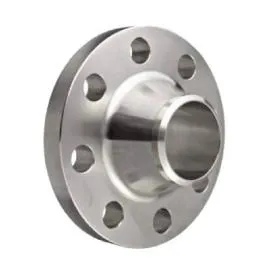-
Cangzhou Yulong Steel Co., Ltd.
-
Phone:
+86 13303177267 -
Email:
admin@ylsteelfittings.com
- English
- Arabic
- Italian
- Spanish
- Portuguese
- German
- kazakh
- Persian
- Greek
- French
- Russian
- Polish
- Thai
- Indonesian
- Vietnamese
- Zulu
- Korean
- Uzbek
- Hindi
- Serbian
- Malay
- Ukrainian
- Gujarati
- Haitian Creole
- hausa
- hawaiian
- Hebrew
- Miao
- Hungarian
- Icelandic
- igbo
- irish
- Japanese
- Javanese
- Kannada
- Khmer
- Rwandese
- Afrikaans
- Albanian
- Amharic
- Armenian
- Azerbaijani
- Basque
- Belarusian
- Bengali
- Bosnian
- Bulgarian
- Catalan
- Cebuano
- China
- China (Taiwan)
- Corsican
- Croatian
- Czech
- Danish
- Esperanto
- Estonian
- Finnish
- Frisian
- Galician
- Georgian
- Kurdish
- Kyrgyz
- Lao
- Latin
- Latvian
- Lithuanian
- Luxembourgish
- Macedonian
- Malgashi
- Malayalam
- Maltese
- Maori
- Marathi
- Mongolian
- Myanmar
- Nepali
- Norwegian
- Norwegian
- Occitan
- Pashto
- Dutch
- Punjabi
- Romanian
- Samoan
- Scottish Gaelic
- Sesotho
- Shona
- Sindhi
- Sinhala
- Slovak
- Slovenian
- Somali
- Sundanese
- Swahili
- Swedish
- Tagalog
- Tajik
- Tamil
- Tatar
- Telugu
- Turkish
- Turkmen
- Urdu
- Uighur
- Welsh
- Bantu
- Yiddish
- Yoruba

Dec . 03, 2024 13:55 Back to list
metal tube
The Versatility and Applications of Metal Tubes
Metal tubes are integral components in various industries and applications due to their strength, durability, and versatility. These hollow cylindrical structures are manufactured in diverse materials, including stainless steel, aluminum, brass, and carbon steel, each offering distinct properties suited for specific purposes. This article explores the significance, manufacturing processes, and applications of metal tubes.
Manufacturing Processes
The production of metal tubes typically involves a set of precise manufacturing processes. Common methods include extrusion, welding, and seamless pipe production.
1. Extrusion This method involves forcing heated metal through a shaped die to create long tube sections. It is an efficient process that allows for the creation of tubes with complex profiles and varying diameters.
2. Welding For welded tubes, flat metal sheets are rolled into a cylindrical shape and then welded along the seam. This method is often employed for carbon steel or stainless steel tubes, where exact dimensions are crucial.
3. Seamless Tubes This type of tube is produced by heating a solid metal billet and piercing it to create a hollow section without seams. Seamless tubes are particularly sought after for high-pressure applications, as they have superior strength and resistance to pressure and temperature changes.
Properties of Metal Tubes
Metal tubes boast several significant properties that make them suitable for a myriad of applications. Their high tensile strength allows them to withstand substantial forces, making them ideal for structural applications. Additionally, metal tubes exhibit excellent resistance to corrosion, especially when coated or made from stainless steel. This property is vital in industries where exposure to moisture and harsh chemicals is common, such as in chemical processing and marine environments.
Furthermore, metal tubes can provide thermal and electrical conductivity, particularly in applications where heat dissipation or electrical transmission is required. Their lightweight nature, especially in aluminum tubes, also contributes to ease of handling and transportation, making them advantageous in fields like aerospace and automotive manufacturing.
metal tube

Applications
Metal tubes have an extensive range of applications across various sectors, including
1. Construction In the construction industry, metal tubes are employed as structural elements in buildings, bridges, and scaffolding. Their load-bearing capabilities and resistance to environmental factors make them indispensable in creating stable infrastructures.
2. Automotive In the automotive sector, metal tubes are utilized in the manufacture of exhaust systems, fuel lines, and structural components. Their strength and lightweight properties contribute to overall vehicle performance and efficiency.
3. Oil and Gas The oil and gas industry relies heavily on metal tubes for pipeline construction, drilling operations, and oil extraction equipment. The durability and dimensional accuracy of metal tubes ensure reliable and safe transportation of hazardous materials.
4. Healthcare In the medical field, metal tubes are used in various applications, including surgical instruments, implants, and even in diagnostic equipment. Their biocompatibility and sterilization properties are crucial for maintaining hygiene and safety in healthcare settings.
5. Aerospace The aerospace industry utilizes metal tubes for airframe structures, fuel lines, and hydraulic systems. The stringent requirements for weight savings and strength make metal tubes a preferred choice in this highly specialized field.
Conclusion
In conclusion, metal tubes play a vital role in modern society, serving as the backbone for numerous industries and applications. Their exceptional properties and versatility ensure they will remain essential in meeting the challenges of various engineering and architectural demands. As technology advances, the capability and efficiency of metal tube manufacturing will likely continue to evolve, further enhancing their applications and contributions to different fields. Whether in the construction of skyscrapers or the operations of healthcare devices, metal tubes are, without a doubt, indispensable elements in our daily lives.
Latest news
-
ANSI 150P SS304 SO FLANGE
NewsFeb.14,2025
-
ASTM A333GR6 STEEL PIPE
NewsJan.20,2025
-
ANSI B16.5 WELDING NECK FLANGE
NewsJan.15,2026
-
ANSI B16.5 SLIP-ON FLANGE
NewsApr.19,2024
-
SABS 1123 FLANGE
NewsJan.15,2025
-
DIN86044 PLATE FLANGE
NewsApr.19,2024
-
DIN2527 BLIND FLANGE
NewsApr.12,2024
-
JIS B2311 Butt-Welding Fittings LR/SR 45°/90° /180°Seamless/Weld
NewsApr.23,2024











